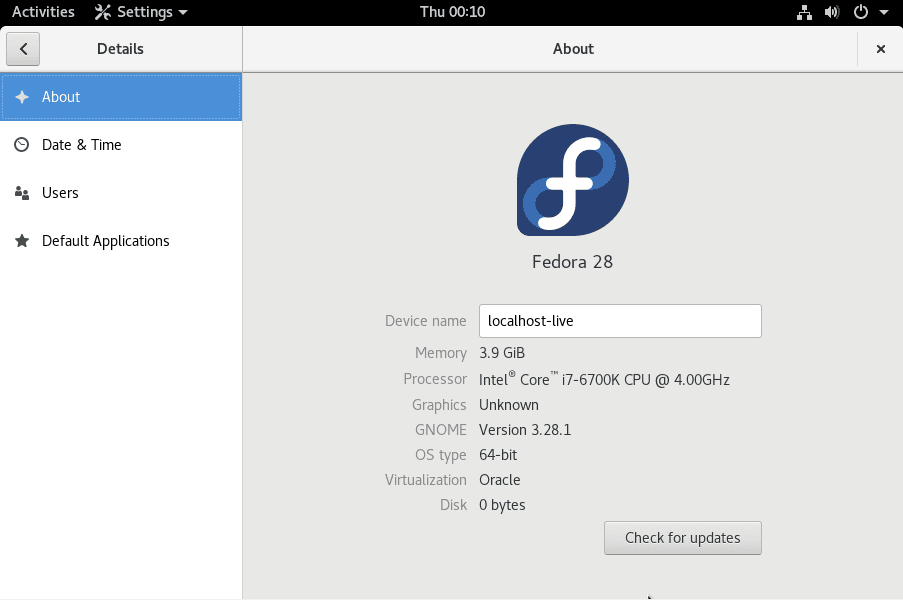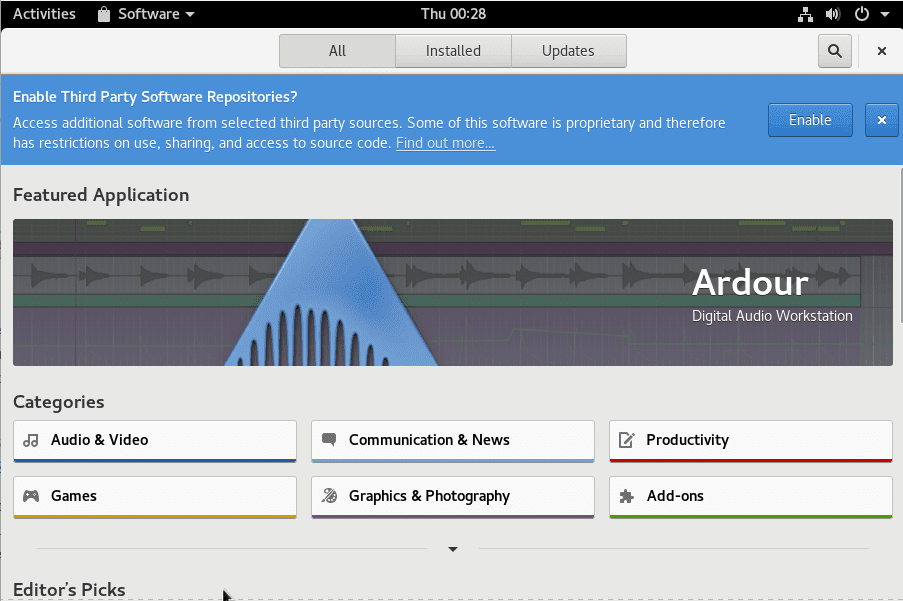Fedora 28 Linux-based operating system released
While the past couple of days were filled with news about the new version of Windows 10 and its massive list of bugs, Linux users have the opportunity to test a new version of Fedora Linux as well.
Fedora 28 is the new version of the Linux distribution and it is available as a Workstation, Server and Atomic Host release.
New users can head over to the official Fedora website to download their version of choice. You may download an ISO image or use the Fedora Media Writer application for the operating system to download and save the Fedora image to an USB Flash Drive which you may boot from.
Fedora 28: what is new

Fedora 28 is a big release that adds and improves features. The new version of Fedora comes with GNOME 3.28 which adds support for new features such as adding file or folder favorites, support for Thunderbird 3, improved battery life, a new on-screen keyboard, media improvements, or a new Usage application to diagnose and fix performance and capacity issues.
GNOME is the default desktop environment of Fedora and all new features are available by default. Users who prefer to use different desktop environments can do so using Fedora Spins.
Fedora 28 Workstation makes it easy to set up third-party repositories like Steam, Chrome or Nvidia drivers by introducing options to install third-party repositories. Enabling the third-party repositories feature right now unlocks access to Google Chrome, Steam, Nvidia graphics driver and PyCharm.

The first time you open the Software application you are asked if you want to enable third-party repositories. You can manage these with a click on Software > Software Repositories as well to include or exclude the supported third-party resources.
Fedora 28 Server admins can make use of a new Modular repository feature which allows you to select different versions of software, e.g. NodeJS or Django, to run on the server. The feature enables you to run different versions of a software on the server. Modularity is an opt-in option; admins who don't require it get the default and don't have to worry about it.
Server supports 64-bit ARM devices now as well which unlocks new possibilities to run Fedora on ARM powered devices.
Other changes in Fedora 28
- Cryptographic settings update to require RSA of 2048 bits at least, and disable DSA
- Move from using libssh2 to libssh in the libcurl library (more secure, feature-complete and better community support).
- TCP wrappers deprecated.
- Fedora 28 was built with updated hardening flags.
You can check out the full release notes here.
This article was first seen on ComTek's "TekBits" Technology News

- Log in to post comments